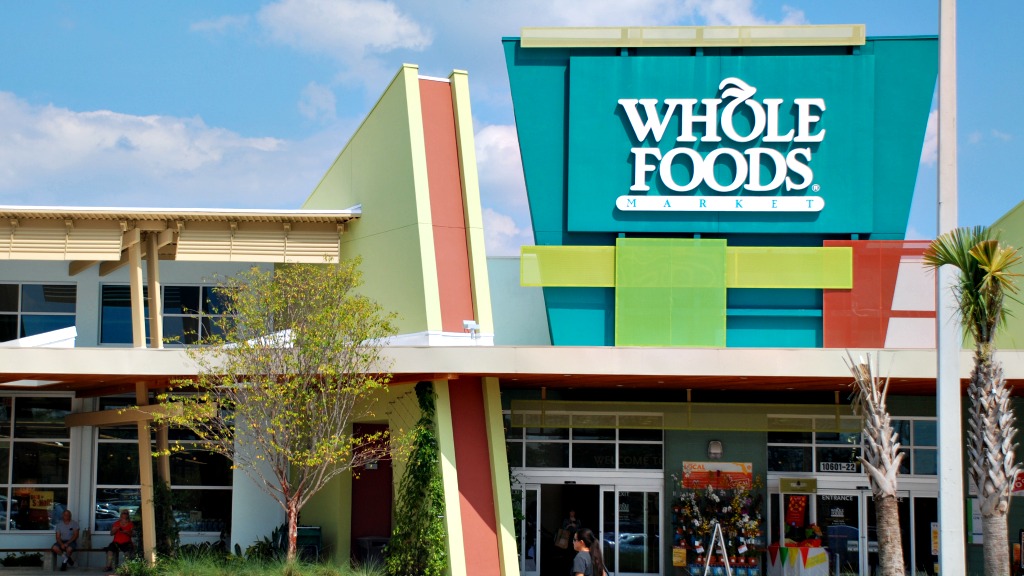Whole Foods — the land of hand-massaged chicken breast and Whole Foods�
According to Bloomberg Business, competition from organic lines at other national retailers has eaten into Whole Foods’ overall profits: Sales growth for the quarter at stores nationwide has slowed to 3.6 percent, much lower than the 5.3 percent gain some analysts had predicted. Last April, we wrote about why penny-pinching organic shoppers should be wary of Walmart’s line of organic food. But Walmart isn’t the only Big Box store threatening Whole Foods’ success, as Leslie Patton and Craig Giammona report:
Kroger’s natural and organic Simple Truth line has become a $1 billion-a-year brand. Costco Wholesale sells organic and grass-fed beef and organic coconut oil under its Kirkland Signature brand; its total organic sales were close to $3 billion last year. Even Wal-Mart is hawking everything from organic chia seeds to its Wild Oats Marketplace organic marinara sauce. There are about 3,800 Wal-Mart stores in the U.S. that have at least 30 Wild Oats items, the company says, plus about 2,300 Walmarts have separate organic produce sections. “You’ve got a number of competitors out in the marketplace that are growing very rapidly—Kroger, Sprouts Farmers Market, Trader Joe’s, Fresh Market,” says Bruce Cohen, senior partner at consulting firm Kurt Salmon. “It’s caused Whole Foods to pause.”
To help recoup their losses, Whole Foods just announced plans to open a chain of bargain stores in hopes of lassoing in the statistically poorer Millennial crowd.
Until Whole Foodz Junior™ launches next year, though, the company’s sales don’t lie: The corporate food giant is burning fewer holes in our (sustainably sourced denim) pockets.



